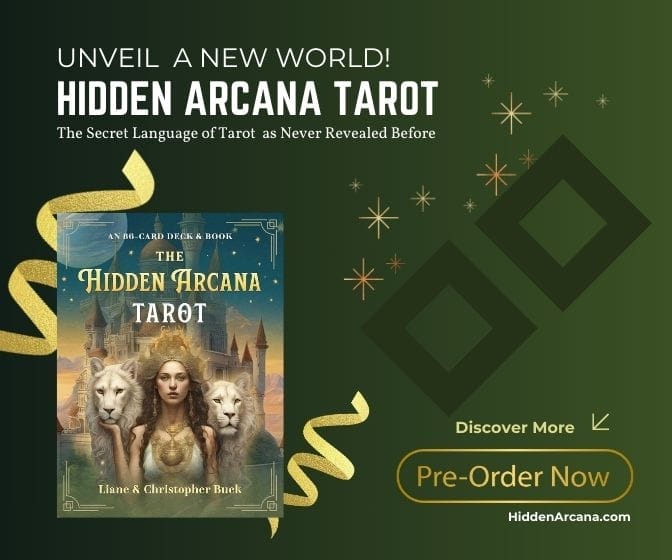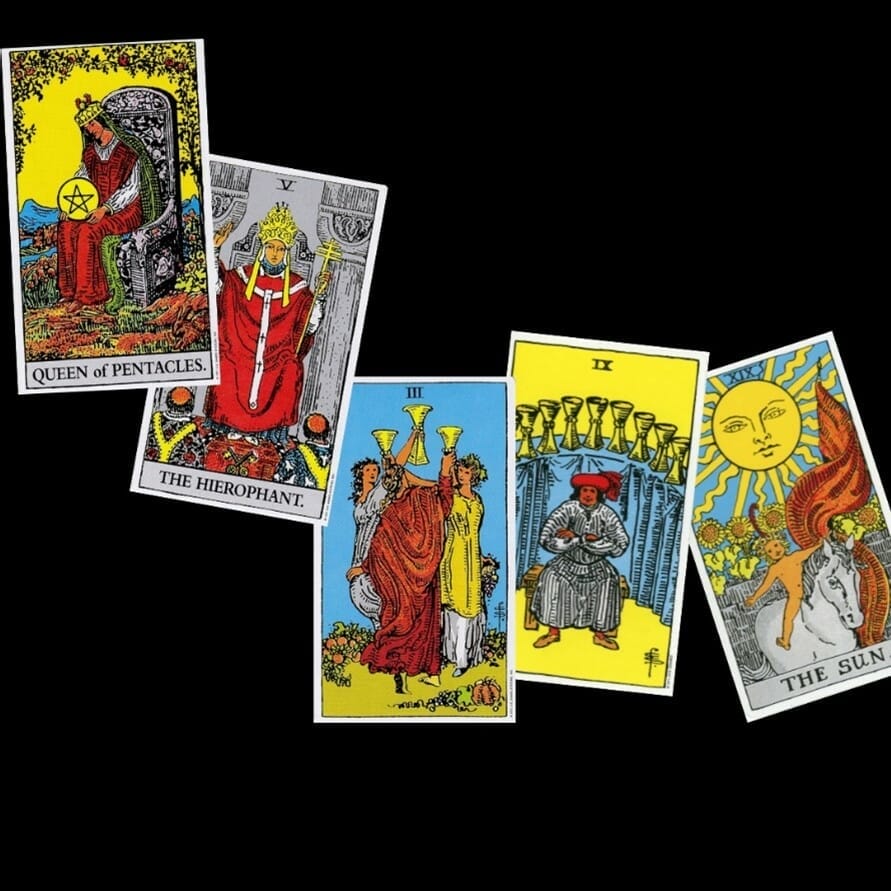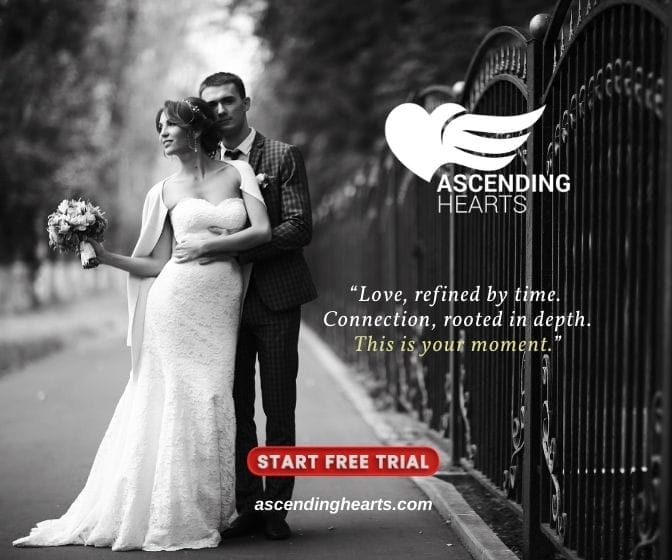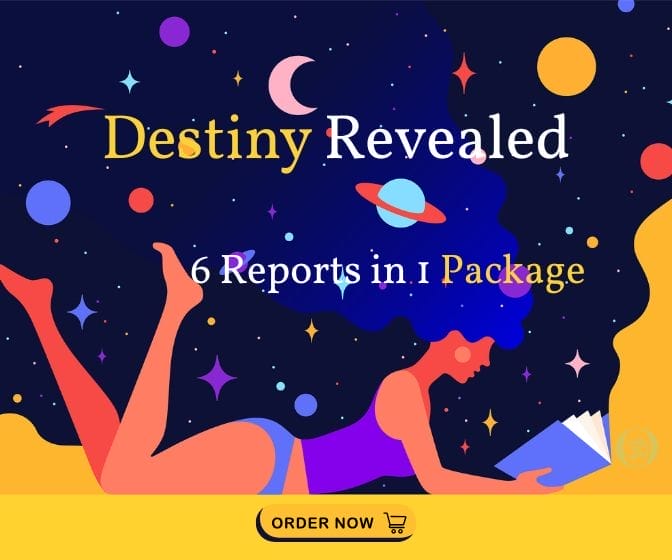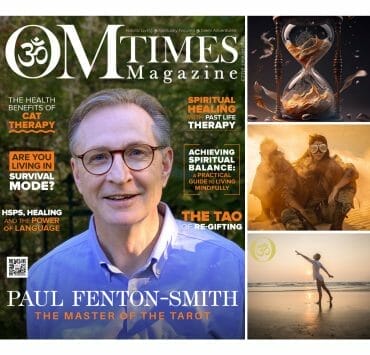Paul Fenton-Smith – The Master of The Tarot
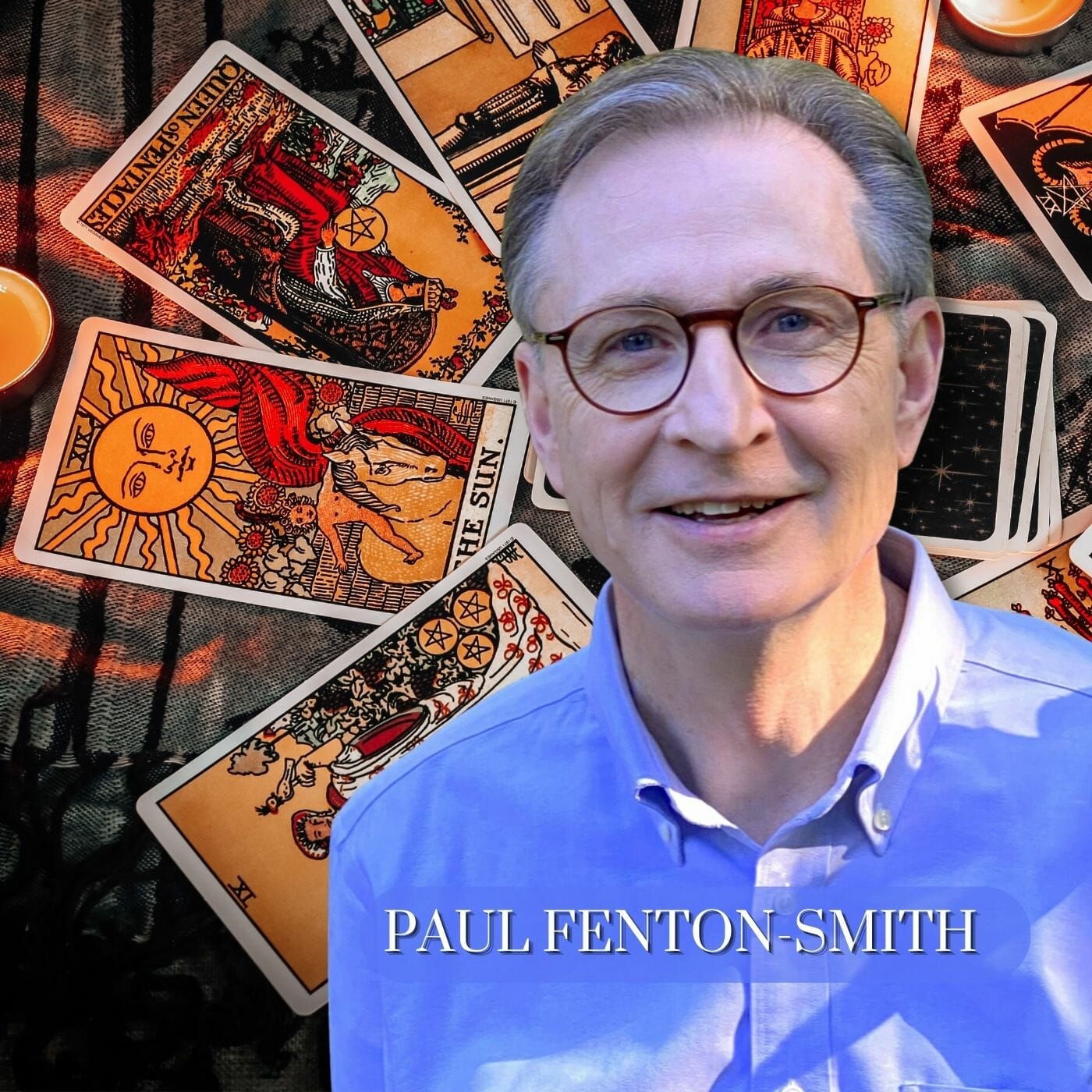
Clairvoyant, writer, and regular media guest Paul Fenton-Smith is the author of eleven books, including Advanced Tarot and four other books on Tarot. In 1985, Paul established the Academy of Psychic Sciences in Sydney, Australia. Paul Fenton-Smith is the winner of the Ommie Award for Tarot for 2022.
An Interview with Paul Fenton-Smith – The Master of The Tarot
OMTimes: How were you first introduced to Tarot, and what drew you to become a reader?
Paul Fenton-Smith: I answered an ad for a vacancy as a palmist and began working six days a week in a small shop. I worked alongside a tarot reader, and during quiet periods, I trained him in hand reading, and he taught me the Tarot. I was initially resistant, explaining that if someone returned four or five times a month, they probably would draw different cards. Then, over the eight months we worked together, I overheard (behind a crimson velvet curtain) him tell someone the same story at the same time each Sunday for seven weeks in a row. This particular client had seven readings in as many weeks and received an almost identical reading each time.
OMTimes: Can you explain the history and origin of Tarot cards to our readers?
Paul Fenton-Smith: There are several origin stories about the Tarot, including an adaption from ancient Chinese sticks used for divination to foundations within the Tora (or Torah). Like most systems, it has evolved over the centuries and continues to progress even now.
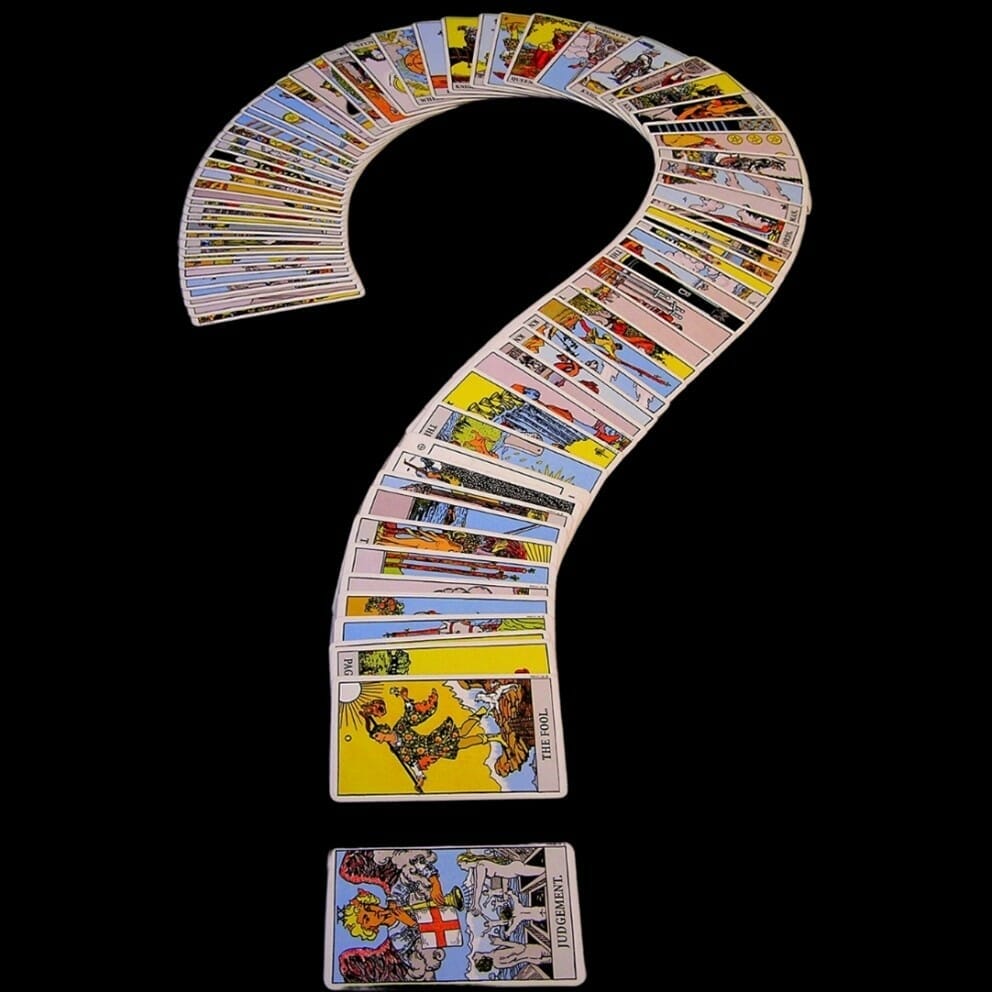
OMTimes: How do you view the Tarot? Is it a tool for divination, guidance, introspection, or something else entirely?
Paul Fenton-Smith: I see the Tarot as a valuable tool for short-term divination (up to two years into the past and two years ahead), as a way to illuminate underlying patterns and spiritual lessons, and for personal guidance during periods of change. Like any system, it has limitations, but the Tarot shines when focused on immediate issues and short-term outcomes.
OMTimes: How do you prepare yourself mentally and in terms of the environment before a Tarot reading?
Paul Fenton-Smith: I usually sit silently for a few minutes to release personal issues to ensure I’m centered. I’ll sometimes inwardly ask for guidance, particularly with how much to say aloud and how to phrase any news that might be unexpected.
OMTimes: How do you interpret the cards: by their traditional meanings, intuition, or a combination of both?
Paul Fenton-Smith: I usually begin with traditional definitions, allowing for cards in combination, then I take a moment to intuitively determine if any card in the layout has a more specific meaning. This might be a person’s star sign, an underlying repetitive pattern, or a significant location. When glancing at the Fool card in one reading, all I could see was the snow. The client had asked if she’d travel with her husband in the coming year. On that day (and that day only), I began by telling her that she’d be skiing in Aspen, Colorado, later that year. Once you’ve been that specific, there’s no going back. Her response was, “Oh yes. We go yearly as my husband’s business partner has a chalet there. I wanted to know if we’d go anywhere else this year.”
Allowing time at the end of each layout for intuition means I can be more specific with descriptions of events ahead. This helps clients recognize circumstances when they arrive.
OMTimes: How do you handle skeptical clients or those who fear the cards?
Paul Fenton-Smith: When clients sit at my reading table, I ask them to sign a form stating they accept they have free will in all predictions and that forecasts are not absolute. Sometimes intuition is like shining a narrow torch into a dark room. You can only describe what is lit by the beam. At other times, I feel as if I’m standing in the room with a client, hearing the conversations, and occasionally feeling overwhelmed by a strong perfume or aftershave of someone in the vicinity.
Skeptical clients rarely pay for readings but sometimes arrive with gift vouchers. If they seem doubtful, I explain that I’ll begin by describing their past and present circumstances to give them confidence in what I say about the future. In rare instances, they cannot recall the people and events I’m describing. In one reading, I described a fit, lean man in his thirties with short blonde hair and blue eyes. He had a small, upturned nose and was mid-height. “This guy looks like an advertisement for a gym,” I said. He must work out all the time. She shook her head, puzzled. 45 minutes later, I heard the entrance door open, so I paused the recorder to greet my guest.
“That’s my partner. He’s collecting me,” she explained. He was the man I had initially described to her, so I beckoned him into the room and asked him to stand next to me. He was bursting out of a tight t-shirt as though he’d just stepped out of a menswear catalog. “Take a close look at both of us and answer me this. Which one of us has short, blonde hair, an upturned nose, and works out at the gym seven days a week?” “Six days,” he corrected me as my client nodded with recognition. After he returned to the waiting room, I enquired how long they had been together. “Eighteen months,” she replied. This is rare. However, sometimes people tell me weeks or years later that they remembered a person or situation that was described in an earlier session.
OMTimes: What do you think are some common misconceptions people have about Tarot?
Paul Fenton-Smith: Some superstitious people have told me that Tarot can bring bad luck, while others sometimes think that readers can create or alter the future. Only clients can influence their destinies with their choices today and tomorrow.
OMTimes: How do you address questions about the future, especially given that many believe the future isn’t set in stone?
Paul Fenton-Smith: I help clients to phrase questions more positively. Instead of simply asking what the future holds for me in love relationships? A client might ask. • What can I do to prepare for my next significant relationship? • What do I need to resolve from my past to be ready for love? • What do I bring to partnerships?
OMTimes: How do you deal with readings that might convey negative or challenging messages?
Paul Fenton-Smith: If a question is answered with a clear ‘No,’ I encourage the person to ask another question. I remind myself that there will be other, different opportunities beyond the one the client is focused on today. I suggest they ask if they are told they will not marry a current partner.
• Will this be a positive ongoing relationship without marriage?
• What is the fundamental spiritual lesson for me in this relationship?
• What is the underlying gift for me in this partnership?
OMTimes: Can you explain the difference between Tarot and other divination tools, like oracle cards or runes?
Paul Fenton-Smith: Tarot is best for immediate issues and short-term readings. Questions around career options, buying a home, investments, travel, and study can be explored using the Tarot.
Palmistry is a whole-life reading that can reveal natural talents, character traits, the most suitable career options, and relationships that won’t arrive for 30 + years. Children and grandchildren can be found in a person’s hands if the lines are clearly marked. It’s not suited to current problems.
Pure clairvoyance readings can focus on immediate issues and also on long-term. In my pure clairvoyance sessions, I often look beyond the client’s last day to see who meets them when they arrive in the afterlife. I might ask them on their last day what they came to learn in this life and if they learned it.
The I-Ching is best suited to people who are prepared to reflect on their personal circumstances in relation to the subtle influences of outer forces so that they know when to move and when to wait.
OMTimes: What role do you believe intuition plays in Tarot readings?
Paul Fenton-Smith: My tarot teacher never used intuition in readings, believing that the system of Tarot is intricately designed to not require intuition. Instead, he paid attention to cards in combination and recurring cards in successive layouts.
I feel that intuition can enhance reading as long as the reader doesn’t forget the fundamentals of the Tarot. Tarot card meanings are helpful when intuitive readers have a bad day or feel blocked for any reason.
OMTimes: How do you cleanse or recharge your Tarot deck?
Paul Fenton-Smith: Every client who sits for a reading with me shuffles my tarot deck, so I don’t use silk to protect the cards because I’d only be holding on to clients’ energies. The cards are working tools, and I replace decks every 18 months.
I shuffle the deck for clients in distance readings (on-screen). Then, I establish an invisible psychic cord to each client early in the reading to help with intuitive information. I take regular salt baths and swim in the ocean during summer to ensure I don’t hold on to client energy cords. I also regularly meditate to cut all psychic cords to ensure I remain centered.
OMTimes: Having achieved fame as a Tarot reader and an author, how do you feel these roles intersect and influence each other in your journey?
Paul Fenton-Smith: I’m from a family of educators, so teaching people to read the Tarot inspires me. From complete beginners opening their first deck in a class to students already in private practice who are role-playing difficult clients and emotionally loaded questions, there are dozens of ways to explore the Tarot. I specialize in asking clients how they’ll get to their goals from where they sit. Tarot readers are sometimes map makers, helping people to plan each step towards viable goals.
OMTimes: Your book, “Intuition” (Keys to Unlocking Your Inner Wisdom), offers a unique perspective on Insights and the most impressive Psychic gifts. What was the inspiration behind writing it?
Paul Fenton-Smith: Intuition evolved from course notes. I was teaching psychic development courses, and students kept asking for more notes. “Where’s that in the notes?” they’d ask, so I’d add to the notes continuously. It is now required reading for my intro courses. The process is that I become interested in something;
I read up on it and sometimes take a course or private lessons. Then, I teach it to deepen my understanding of the subject. Next, I write course notes and refine them into books. A friend recently explained that she’s always aware of what I’m currently interested in by the new workshops I’m designing. She knows that a book will eventually follow. Book twelve is due out before Christmas. It’s an advanced intuition book.
OMTimes: With so many Tarot and Metaphysical books in the market, what gap did you aim to fill, or what fresh insights did you hope to bring with your Books?
Paul Fenton-Smith: I noticed in the 1980s that students remember examples more than plain facts. By telling stories while teaching card meanings, students can recall the Tarot more clearly when giving practice readings. My first book, The Tarot Revealed, was refined over a few years when I wrote down every question students asked over 14 consecutive courses. When I’d answered all of these questions in the book, I knew it would flow more easily for readers. I write for people who want to give tarot readings, leaving all the esoteric aspects to other writers. An effective reading needs to address real-world issues while acknowledging underlying spiritual lessons.
OMTimes: Being a prominent figure in the Tarot community, how do you handle the responsibility of setting standards or guiding budding Tarot enthusiasts?
Paul Fenton-Smith: I’m strict with guidelines for tarot readers. These include not reading when under the influence of drugs, serious medications, or alcohol. I ask students to limit one-card cuts to basic questions, such as ‘Will I find a car park close to my favorite café if I leave home now?’
I caution readers not to read for clients when their partners, parents, or friends are present, as they’ll inadvertently reveal secrets. I caution students to avoid tarot addiction (overuse of cards to make decisions that can be easily made using logic and common sense). This means dependence on the card themselves or clients who want readings every week. I explain that no one’s life is sufficiently interesting to warrant a tarot reading every week. I also point out that selecting one card every day often simply trains people to look for incidents that explain that card. It’s simply confirmation bias. A better way is to select a card at the start of each day, write down a few key points about that day in the evening, and then reveal the card’s face.
I remind students that although the Tarot is useful for predictions and revealing underlying lessons, it’s not a pathway back to God or our creator. The Tarot shows many journeys we can take on our unique paths to enlightenment without actually being a route in itself.
OMTimes: As an author, how do you feel the written word can enhance or shape the understanding of the Tarot, which is largely visual and intuitive?
Paul Fenton-Smith: When students are stuck with a card’s meaning in practice sessions, I ask them to memorize it. If, for example, a person cannot remember the basic meaning of the Seven of Wands, I might ask:
“What suit is it?” Wands.
“What is the theme of the wand suit?” Action, conquest, adventure, passion, achievement, physical effort, and competition.
“What number is the card?” Seven.
“What is the phrase for the sevens?” Don’t give up.
Knowing this, what can you say to your client? There’s a lot on your plate, but don’t give up. Instead, think of ways to better manage your current responsibilities. I remind students that when Wands’ people are overburdened, it’s usually the result of their own choices.
Having a reference book when you’re stuck in early readings can mean the difference between becoming a tarot reader and abandoning the learning process altogether. Students appreciate having a quick, clear guide when they give readings to maintain the flow of the session.
Even advanced readers sometimes need to refer to books during unusual readings. They do this more smoothly than beginners by saying, ‘This is a specific combination of cards. I haven’t seen this in a long time, so I’d like to check a reference to be certain.” Now, the client feels special instead of uncertain about the reader’s ability.
OMTimes: Your book Advanced Tarot mentioned: “The Tarot provides a glimpse of life’s hidden, otherworldly side.it is a window through which it is possible to glean personalized spiritual direction.” Can you elaborate more on that, especially for those new to Tarot?
Paul Fenton-Smith: If we accept that humans are more than our physical bodies and have emotional, mental, and spirit forms, it’s easy to recognize that each energy system requires nourishment. Food, water, exercise, sunshine, and sleep can feed the physical body. The emotional body is nourished through love, friendship, music, creativity, and animal care. The mental body is refreshed through reading uplifting books, studying, volunteering, conversations and discussions, or gathering and testing knowledge.
Our spiritual selves sometimes find nourishment when the physical body sleeps, traveling off at night to a sleeper’s class or perhaps joining a spiritual group meditating in another location.
Finding purpose in life is different from achieving goals. Goals are what we want from life, whereas purpose is often found in what we give back to others. Identifying your unique way to contribute is a great way to nourish yourself spiritually for your soul’s journey through life and beyond. As part of our spiritual journey, the Tarot reminds us when we stray from our intended path in life or what we can learn from current circumstances.
OMTimes: How do you deal with criticism, especially given that despite its popularity, Tarot still has its skeptics?
Paul Fenton-Smith: I accept that the Tarot is not for everyone. Years ago, in a radio interview, members of the Australian Skeptics Association phoned to give me a hard time. I asked if their opinions were based on personal experience, experiments involving a control group, or half-baked hearsay. To their credit, not only did they venture out and have some readings, but two of them joined the Australian Psychics Association.
In interviews, I usually say that if you can make a clear decision without the cards, that’s great. You’ve saved enough money for a decent dinner for two. However, when you’re torn between several options or unable to see any viable choices, consulting a stranger who can clarify your opportunities ahead can be advantageous.
OMTimes: What advice would you give to Tarot readers who aspire to write their own book or guide?
Paul Fenton-Smith: I would suggest that aspiring authors teach the Tarot for at least a year (four or five short courses) while collecting examples of each card to provide a unique approach. Educating others forces us to know the card meanings for various questions. In advanced courses, I lay seven cards on the table, and together, students give a general reading. Then, I ask five questions, and students answer each using seven cards.
It forces students to ask themselves, ‘What does the Strength card mean in a question about dental surgery, overseas travel, a new job, or a home extension?’
OMTimes: How do you think the modern interpretation of Tarot differs from its historical or traditional roots, and how have you addressed this in your book?
Paul Fenton-Smith: Although contemporary clients ask about careers that have only existed for ten years or explore choices their ancestors could not have dreamed about, the Tarot addresses those timeless issues about finding love, meaningful work, creative outlets, or deeper purpose in life. It can also answer innovative questions if they are defined clearly.
OMTimes: In the journey of becoming both a famous Tarot reader and a published author, what has been your most transformative experience?
Paul Fenton-Smith: In 1991, when I was studying with a spiritual teacher in the UK, she explained to me that as much as I loved the Tarot, I’d eventually need to go beyond it as I reached for details on what lies beyond this life. This wasn’t said to diminish the Tarot but to remind me that it was simply part of my journey and not the actual destination.
OMTimes: Do you believe that Tarot reading can be fully captured in words, or is there always an element that remains beyond description?
Paul Fenton-Smith: I don’t think that all of the Tarot has been captured in words yet. Each generation approaches it slightly differently, blending tradition with innovation. In combination with personal intuition, the Tarot provides a jumping-off point for spiritual exploration.
OMTimes: Can you give us a sneak peek into any upcoming projects or books you’re working on?
Paul Fenton-Smith: I’ve completed two advanced intuition books. I’m exploring a book about how energetic bodies or parts of us can be left behind during trauma, leaving people feeling empty and directionless. If I write this book, it will revolve around how to retrieve those parts of us, cleanse and restore them, and integrate them into our lives again. The process is like marshaling an army, potentially capable of achieving more because it’s a team that works in unison.
I’m also writing two novels that will hopefully become screenplays and films and revising and expanding an out-of-print astrology book for possible release in 2024.
OMTimes: Lastly, as someone at the forefront of the Tarot world, where do you see the future of Tarot heading, both as a spiritual practice (In a world of developing AI) and as a topic of literary exploration?
Paul Fenton-Smith: I haven’t explored how AI will influence the direction of tarot reading. The Tarot will endure as a tool for guidance and spiritual practice. Its advantage over more modern oracle decks is that the foundation is solidly based on human nature and the natural desire for spiritual meaning. It’s no accident that it has lasted this long, and future tarot authors will find unique ways to keep it relevant for generations to come.
Click the covers to learn more about each!
 |
 |
 |
 |
 |
 |
||
About Paul Fenton-Smith
Author of “Advanced Tarot: An In-Depth Guide to Practical & Intuitive Tarot Reading”, Clairvoyant, writer, and winner of the Ommies award as best Tarot Reader worldwide, Paul Fenton-Smith is the author of ten books. With simple language and entertaining examples, Paul takes a practical approach to the esoteric. Whether reading for clients, teaching, or conveying his knowledge through books, Paul’s realistic approach brings clear benefits to people’s everyday lives.
Aside from his teaching commitments at the Academy, Paul runs a busy private practice in Sydney as a clairvoyant, counselor, and hypnotherapist and conducts courses around Australia.
Rough practicing and teaching the psychic sciences for more than 40 years, Paul encourages his clients and students to believe in what they can see or experience for themselves. Learn more about him at https://www.paulfentonsmith.com/
BOOKS:
• Astrology Revealed (1997).
• A Secret Door to the Universe (2017).
• Mastering the Tarot (2000).
• Finding Your Soul Mate (2001/10)
• True North (2002)
• Palmistry Revealed (1996/2017)
• Tarot Masterclass (2007).
• Intuition (2011)
CDs: Guided Meditations (2001)
• Improve your Intuition (2006).
• Finding Your Soul Mate (2007)
• Restful Sleep (2012)
DVD • Discover the Tarot (2004)
© 2023 Copyright: Paul Fenton-Smith. ![]()
OMTimes is the premier Spiritually Conscious Magazine. Follow Us On Facebook, Twitter, Instagram, Linkedin, Pinterest, and Youtube
OMTimes Magazine is one of the leading on-line content providers of positivity, wellness and personal empowerment. OMTimes Magazine - Co-Creating a More Conscious Reality



